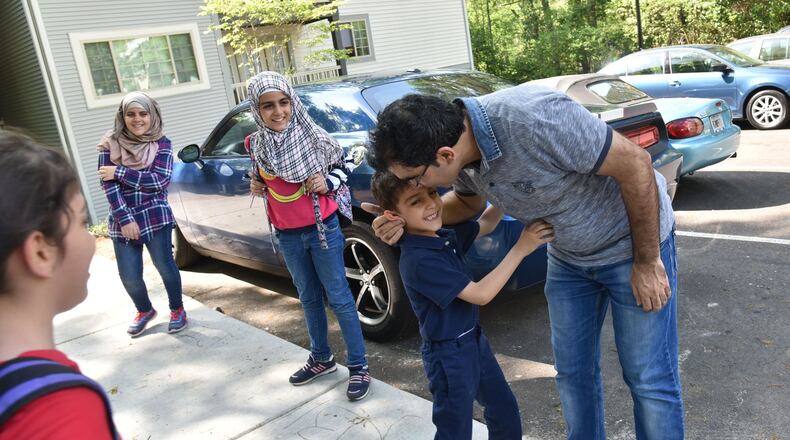Yaser and Barwin Musa resettled in Georgia last year with their five children after fleeing deprivation and violence in Syria's 6-year-old civil war. But before they were able to come here they had to successfully complete a one-and-a-half-year-long security screening process for refugees overseas.
In an interview at their modest apartment in Clarkston, the couple said they and their children submitted to six interviews with United Nations and U.S. authorities — sometimes together and sometimes individually — and were fingerprinted and photographed and had their retinas scanned. At the U.S. embassy in Istanbul, authorities asked them many questions: Why did you leave Syria? What did you do for a living there? Did Yaser serve in the Syrian military?
“A lot of people were turned away in the process,” Yaser said through an Arabic interpreter. “One time they would ask you questions, and the next time another person would ask you the same questions. And if your story was a little bit different, they would ask you again and probe you further.”
The Trump administration is seeking to temporarily ban visitors from six Muslim-majority countries, including Syria, as well as refugees from around the world as it bolsters its screening procedures. Though federal courts have halted much of Trump's directive, his administration is at work devising new procedures.
While supporters say the vetting process is already thorough, critics argue it is not impenetrable and that even one slip could result in dire consequences.
About the Author
Keep Reading
The Latest
Featured



